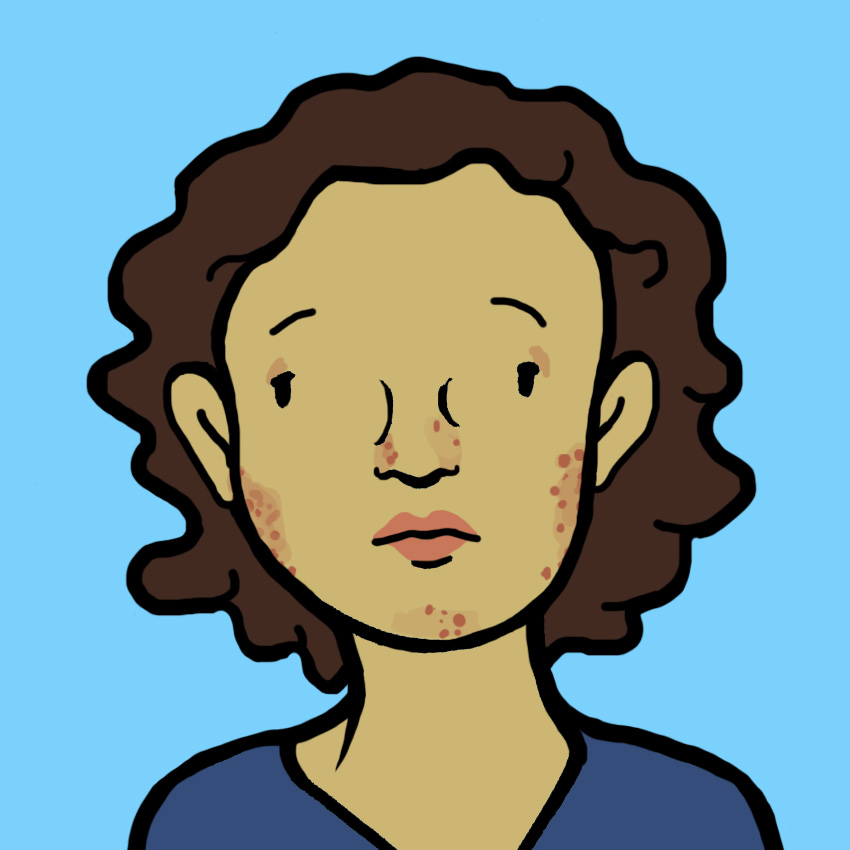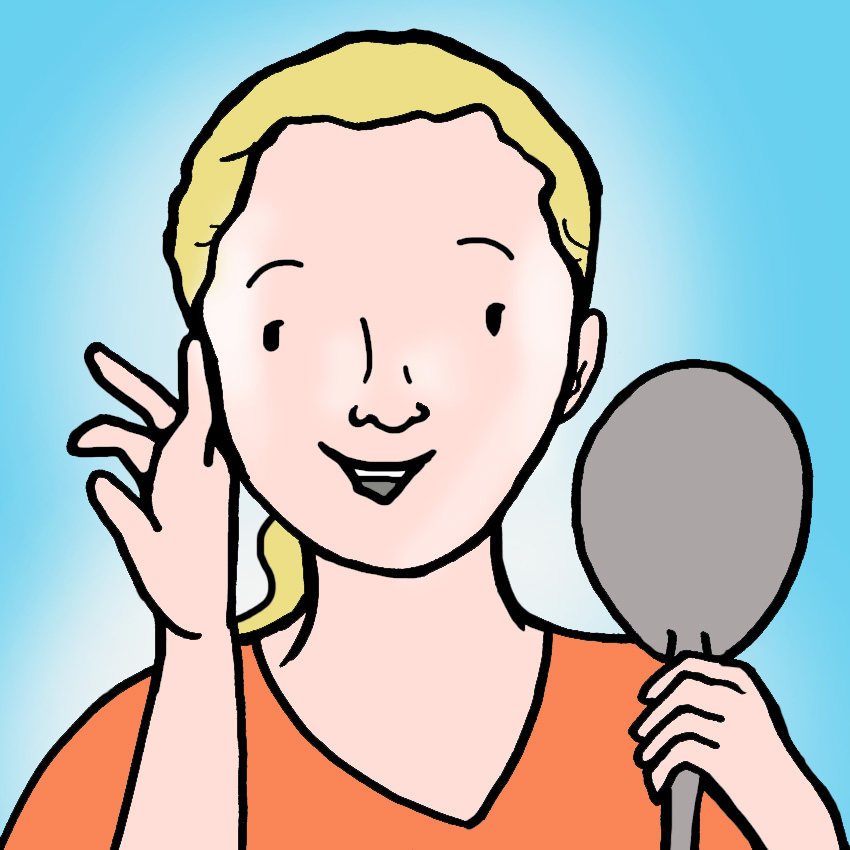The eyes may be the windows to your soul, but did you know that your skin is the window to your health? It’s true! According to medical experts, your skin can actually say a lot about you, and changes — from discoloration to acne — may sometimes be signs of underlying health problems.
Do you ever notice that whatever is going on in your life seems to show on your skin?
Stress, diet, pollution, medication, and lack of exercise all impact how your skin looks, causing everything from dryness and irritation to unsightly outbreaks and rosacea.
“Throughout our lifetime, the environment we are exposed to is consequently reflected in our skin. Our skin is the first barrier of defense against our surroundings, and it’s important to keep it strong and healthy,” Holy Cross Hospital’s Physician Partners dermatologist Nicole Conrad, MD, told LittleThings.
Of course, problematic skin could simply mean that you need to alter your beauty routine, but your skin’s condition could also be the tell-tale sign of an underlying medical condition.
It’s important to note that while this list should never take the place of medical advice, these are quick and easy indicators to know if something might be wrong and to help you identify factors possibly affecting your skin health.
Is your body trying to tell you something? Scroll through the images below to find out what your skin could reveal about your overall well-being.
#1. Acne

Adult acne can pop up and, for some women, get worse in times of stress, during a period, or during menopause. In certain cases, pimples popping up along your jawline and chin could signal a possible hormone imbalance. If you’re still plagued by pimples in adulthood, a visit to the dermatologist may be needed so you can treat the underlying causes of your acne.
#2. Dull, Dry Skin

Dry, dull skin is a very common skin problem and is often worse during the winter. But if you notice this throughout the year, it could indicate that you’re dehydrated and lacking the moisture your skin needs. A deficiency in essential fatty acids omega-3 and omega-6 can also lead to the condition of dry skin. By simply increasing your water consumption and changing your diet to include more omega-3 rich fish, like salmon and tuna, you can typically see a difference in your skin. (If you’re not a fish fan, you can still get your necessary nutrients from flaxseed, walnuts, and some green vegetables, such as Brussels sprouts, kale, and spinach.)
#3. White Spots Around Eyes

Milia are those pesky white spots that usually appear around the eyes and eyelids. While there is no cause for concern, some people do find them affecting their appearance. These white spots typically occur when dead skin cells clump together and are trapped under the skin’s surface. Sun damage can also be a contributing factor to milia. While milia can typically go away without treatment, you can get rid of those spots faster by using exfoliating treatments with salicylic acid.
#4. Oily Skin

Oily skin can be caused (and worsened) by your diet. It’s best to avoid foods that can increase oil production and inflammation in the skin, like alcohol, sugar, dairy, and unsaturated fats. Eating foods rich in vitamins and antioxidants can help keep your skin looking beautiful and glowing. In addition to eating right, choose the right cleanser to keep the oil under control.
#5. Puffy Eyelids

When the area around your eyes becomes puffy, it's likely the cause of allergies or lack of sleep. But before you seek medical attention, there are many different home remedies you can try:
- Anti-inflammatory creams
- Cold water
- Cucumbers
- Get more sleep
In more severe cases, it’s important to seek a medical professional.
#6. Excess Facial Hair

Unwanted hair around the chin could be a sign of polycystic ovarian syndrome (PCOS), a hormonal disorder. Women with PCOS are at a higher risk for obesity, diabetes, high blood pressure, and heart disease. If you’re concerned, or exhibiting other symptoms of PCOS — such as an inability to lose weight despite diet and exercise or irregular periods and acne — consult a doctor to rule out PCOS.
#7. Hyperpigmentation

Hyperpigmentation is a condition that causes patches of skin to become darker in color than the normal surrounding skin. It can be caused by sun damage, inflammation, or other skin injuries, including those related to acne. Typically, over-the-counter remedies can help lighten those dark spots, but if they aren’t getting rid of them, it’s time to call in the pros for effective treatment for stubborn skin discoloration.
Ways To Get Beautiful, Glowing Skin

“While it is important to lead a healthy and active lifestyle, precaution should be taken against overexposure from the outside elements. Sunscreen should be applied daily and care should be taken to hydrate and moisturize, keeping the skin soft and supple,” advises Dr. Conrad.
What other ways can help your skin look fabulous? Drinking six to eight glasses of water a day keeps skin looking fresh. (Even mild dehydration will cause your skin to look dry, tired, and slightly gray!) You can also eat your way to better skin with some of these healthy superfoods:
- Salmon
- Avocados
- Nuts and seeds
- Blueberries
- Carrots
- Sweet potatoes
Because all bodies are different, there is no one “right” prescription for everyone. “A board certified dermatologist can easily evaluate your skin to determine if any concerning issues are present,” Dr. Conrad added.
Talk to your doctor about finding the right medications, doses, and management plan for you. Please SHARE this information with the women you know to make sure they stay healthy.




